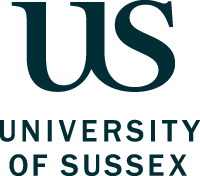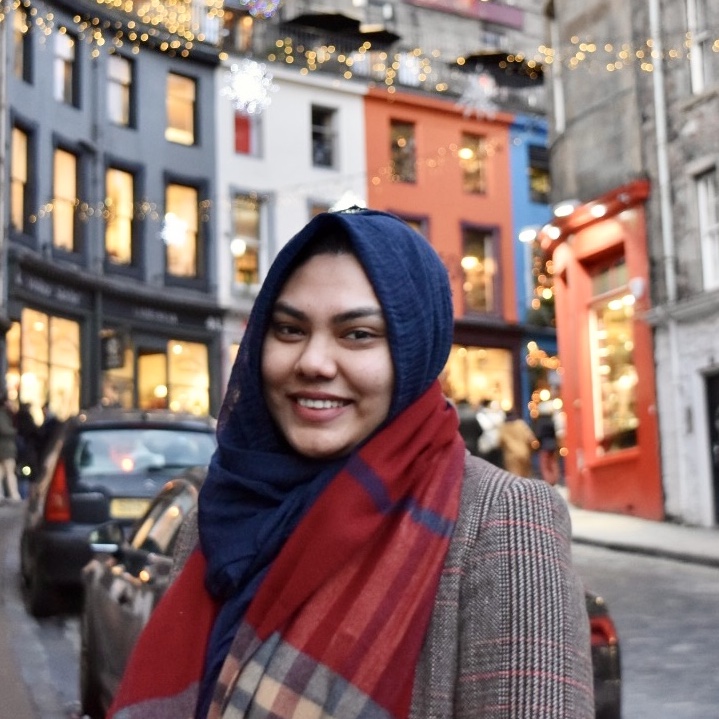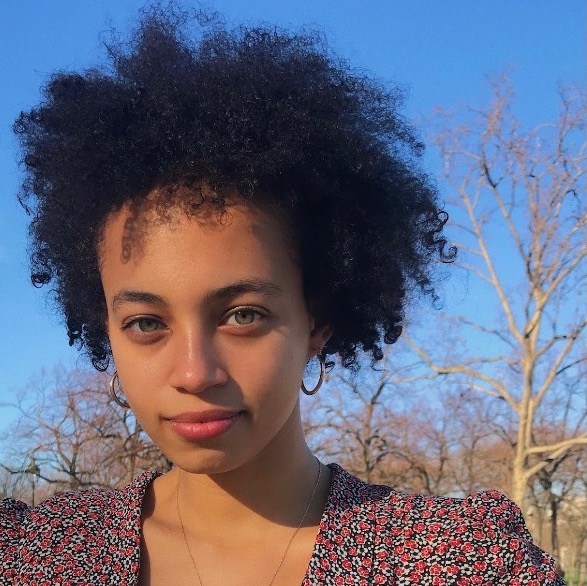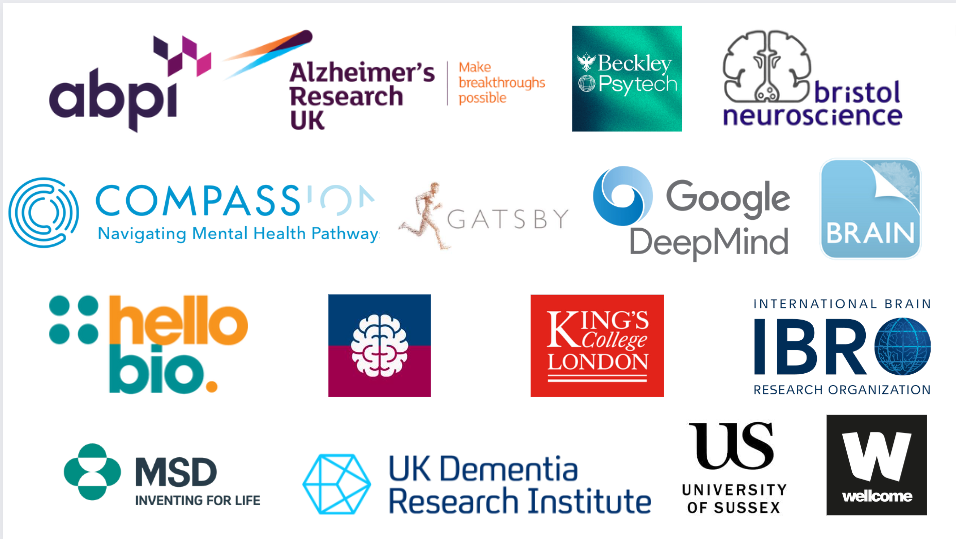BNA Annual General Meeting 2025
1st April 2025
25th May 2023
Stepping into year three of the BNA's Scholars programme, we are proud to announce three new Supporters for 2023 and beyond. These are organisations who have shown dedication to helping improve Equity, Diversity & Inclusion in neuroscience, and we are honoured to welcome them to our growing community. They are: ABPI (Association of British Pharmaceutical Industries), University of Sussex/Sussex Neuroscience, and for a third year running, MSD.
This group of forward thinking organisations join our innovative network of EDI supporters; representing the full breadth of the neuroscience sector, covering academic, commercial, and third sector organisations, all united with a strong commitment to improve EDI in neuroscience.
They include the following organisations: Alzheimer’s Research UK, Beckley Psytech, Bristol Neuroscience, COMPASS Pathways, The Gatsby Charitable Foundation, Google DeepMind, Guarantors of Brain, HelloBio, Department of Brain Sciences at Imperial College, International Brain Research Organisation (IBRO), School of Neuroscience - Kings College London, Wellcome and the UK Dementia Research Institute (UK DRI).
We are very grateful to all our Supporters for their cohesive commitment to the BNA Scholars programme, and greatly look forward to working together to ensure the BNA’s important EDI work can continue to progress and grow.
The BNA Scholars programme has recently welcomed its third cohort of Scholars. If you’d like further information about the Scholars Programme, please contact:Dani Wijesinghe (office@bna.org.uk), or Sophie Jerrold (sophie@bna.org.uk) about supporting this work.
ABPI Association of British Pharaceutical Industries
 Jill Pearcy, ABPI Director of Reputation said: “Equality, diversity, and inclusion are integral to the ABPI’s mission to make the UK the best place in the world to research, develop and use the medicines and vaccines of the future. We’re proud to sponsor the BNA Scholars programme as it promotes the inclusion of under-represented groups in neuroscience and creates a community and culture where people from all backgrounds can flourish within the discipline.”
Jill Pearcy, ABPI Director of Reputation said: “Equality, diversity, and inclusion are integral to the ABPI’s mission to make the UK the best place in the world to research, develop and use the medicines and vaccines of the future. We’re proud to sponsor the BNA Scholars programme as it promotes the inclusion of under-represented groups in neuroscience and creates a community and culture where people from all backgrounds can flourish within the discipline.”
University of Sussex/Sussex Neuroscience
 “We are delighted to be working with the BNA in improving the much needed diversity and inclusion of under-represented groups in Neuroscience. Through our collaboration with the BNA in supporting students and early career researchers from more diverse ethnic backgrounds, we endeavour to enhance more diverse innovative thinking and solutions to complex problems in Neuroscience.”
“We are delighted to be working with the BNA in improving the much needed diversity and inclusion of under-represented groups in Neuroscience. Through our collaboration with the BNA in supporting students and early career researchers from more diverse ethnic backgrounds, we endeavour to enhance more diverse innovative thinking and solutions to complex problems in Neuroscience.”
MSD
 "MSD is a proud supporting member of this scheme. The BNA’s ambition to improve ED&I in neuroscience research is exemplary. As a research-led company, we too are passionate about supporting initiatives that promote diversity, equity and inclusion in scientific research. We look forward to following the cohort’s future success!” Jill Richardson, Executive Director, Head UK Neuroscience, MSD
"MSD is a proud supporting member of this scheme. The BNA’s ambition to improve ED&I in neuroscience research is exemplary. As a research-led company, we too are passionate about supporting initiatives that promote diversity, equity and inclusion in scientific research. We look forward to following the cohort’s future success!” Jill Richardson, Executive Director, Head UK Neuroscience, MSD
 Arish (he/him) is a neuroscientist, liberal arts scholar, and EDI consultant. He was born and raised in Ghaziabad, India, but has since spent many years drifting across the continents.
Arish (he/him) is a neuroscientist, liberal arts scholar, and EDI consultant. He was born and raised in Ghaziabad, India, but has since spent many years drifting across the continents.
Arish is currently completing a PhD in Translational Neuroscience at the University of Edinburgh, where his work is funded by the Wellcome Trust, the South African MRC Unit on Genomics of Brain Disorders, and the Harold Hyam Wingate Foundation. Arish’s research focuses on the neurobiological mechanisms underlying the high prevalence of depression amongst people living with HIV. This work is driven by Arish’s passion for HIV healthcare and interest in neuropsychiatric disorders. Leveraging HIV participant cohorts in the UK, the Netherlands, and South Africa, Arish is working to determine whether neuroinflammation can explain why people living with HIV face a significantly higher risk of depression.
Arish has also worked in partnership with collaborators, mental health professionals, and people with lived experience of depression to develop a transcultural translation in isiXhosa of a widely-used depression screening tool. In addition, as a liberal arts scholar and EDI consultant, Arish researches and writes on issues ranging from neocolonialism in education to equity and inclusion in philanthropy and non-profits.
 Dipa is a PhD student in a Biotechnology and Biological Sciences Research Council doctoral programme at University College London. Dipa has joined the Perinatal Brain Repair Group and her PhD is looking at formulating novel nanocarrier treatments for treating neonatal neurodegeneration. Dipa’s research utilises molecular and behavioural techniques to investigate the application of novel therapies in neonatal hypoxia-ischemia to determine successful delivery to areas of neurodegeneration in the brain. This interdisciplinary research bridges aspects of pharmaceutics and fundamental neuroscience by providing a translational approach to neonatal neurodegeneration therapeutics.
Dipa is a PhD student in a Biotechnology and Biological Sciences Research Council doctoral programme at University College London. Dipa has joined the Perinatal Brain Repair Group and her PhD is looking at formulating novel nanocarrier treatments for treating neonatal neurodegeneration. Dipa’s research utilises molecular and behavioural techniques to investigate the application of novel therapies in neonatal hypoxia-ischemia to determine successful delivery to areas of neurodegeneration in the brain. This interdisciplinary research bridges aspects of pharmaceutics and fundamental neuroscience by providing a translational approach to neonatal neurodegeneration therapeutics.
Before her PhD, Dipa worked as a Research Scientist with a Cancer Research Group at the Royal Marsden Hospital with an honorary appointment with the Institute of Cancer Research. Now, at UCL, Dipa is the Equality, Diversity and Inclusion Representative for her Institute.
 Faissal Sharif obtained a BSc in Biomedical Sciences at Maastricht University in the Netherlands with a semester abroad at the Chinese University of Hong Kong. As a visiting scholar at the University of California, Irvine, he investigated novel biomarkers for Alzheimer’s Disease. He then completed his MSc in Translational Neuroscience at Imperial College London while researching the effect of psilocybin on EEG power, signal diversity (i.e. entropy) as well as psychological outcomes at the Centre for Psychedelic Research. As part of the R&D team of a neurotechnology startup and life science consultant, he has worked at the intersection between neuroscience, technology and consumer health.
Faissal Sharif obtained a BSc in Biomedical Sciences at Maastricht University in the Netherlands with a semester abroad at the Chinese University of Hong Kong. As a visiting scholar at the University of California, Irvine, he investigated novel biomarkers for Alzheimer’s Disease. He then completed his MSc in Translational Neuroscience at Imperial College London while researching the effect of psilocybin on EEG power, signal diversity (i.e. entropy) as well as psychological outcomes at the Centre for Psychedelic Research. As part of the R&D team of a neurotechnology startup and life science consultant, he has worked at the intersection between neuroscience, technology and consumer health.
In 2022, he joined the Tan Lab at the MRC BNDU to investigate novel non-invasive brain stimulation (NIBS) applications targeting psychiatric symptoms present in a variety of affective and neurological disorders. Beyond potential new transdiagnostic treatments using neurotechnology, Faissal is interested in neuronal underpinnings of affective processing, anhedonia and apathy.
Faissal has received numerous fellowships, from the Medical Research Council (MRC), the Foundation of German Economy (SDW), the German Academic Exchange Service (DAAD), Deutschlandstiftung Integration (DSI) and others. He is co-founder of Corpus Curiosum, an initiative for early-career researchers to promote critical thinking in Neuroscience.
 Jess is currently a final year undergraduate student studying for her BSc in Biological Sciences at the Open University. She has recently accepted an offer from the University of Oxford to complete an MSc in Pharmacology, where she’ll focus particularly on neuropharmacology.
Jess is currently a final year undergraduate student studying for her BSc in Biological Sciences at the Open University. She has recently accepted an offer from the University of Oxford to complete an MSc in Pharmacology, where she’ll focus particularly on neuropharmacology.
Her research interests include investigating the effects of drugs on neural circuits and their use in treating mental illnesses. Jess is also interested in the prevention of Alzheimer's disease, having volunteered in a dementia care home. Through her undergraduate studies and neuroscience seminars, she has developed a further interest in understanding the association between amyloid plaques and Alzheimer's. She looks forward to developing these interests through her master’s degree and further studies.
Jess intends to pursue a PhD after her MSc, where she will further explore neuropharmacological drug developments. She is keen to continue her outreach, leveraging the opportunities provided by being a 2023 BNA Scholar.
 Kavishini is a first-year PhD student in Psychology at Royal Holloway, University of London, supervised by Dr Carl Hodgetts and Professor Narender Ramnani. Prior to this, she completed her BSc in Psychology at Royal Holloway, University of London. During this undergraduate degree, she was awarded the Outstanding Student Research Bursary to pursue a six-week research placement investigating memory, which reinforced her interest in scientific research and led her to apply and get accepted for a PhD programme.
Kavishini is a first-year PhD student in Psychology at Royal Holloway, University of London, supervised by Dr Carl Hodgetts and Professor Narender Ramnani. Prior to this, she completed her BSc in Psychology at Royal Holloway, University of London. During this undergraduate degree, she was awarded the Outstanding Student Research Bursary to pursue a six-week research placement investigating memory, which reinforced her interest in scientific research and led her to apply and get accepted for a PhD programme.
Her research interests focus on understanding how the brain might be interconnected and how these brain connections might be impacted during normal ageing or pathology. Her PhD explores this area closely, investigating how the hippocampus and the cerebellum interact, specifically in the context of spatial navigation. Her studies aim to characterise the structural and the functional connectivity between these two areas using a mixture of fMRI, diffusion MRI and brain stimulation methods (e.g. TMS).
Beyond uncovering more about the interconnected nature of the brain, Kavishini hopes to extend this research into clinical settings by applying her research to clinical populations such as Alzheimer’s Disease patients, and deepening her study in neurodegenerative disorders.
 Laura is an MRC DTP PhD Student in Basic & Clinical Neuroscience at King’s College London. She joined King’s after completing her MSci in Medical Biochemistry at the University of Bristol. Her interest in neuroscience first sparked when she completed a summer scholarship placement with the North Bristol NHS Trust Research Foundation on ‘Biomarkers for brain tumours’ with consultant Prof. Kathreena Kurian. She then went on to do her MSci project on synaptic plasticity and spine morphogenesis in Alzheimer’s disease with Dr Jonathan Hanley. Currently, Laura works on mapping the RNA and protein expression patterns of FET proteins at single cell resolution throughout the mouse Central Nervous System and ageing. This will be followed by a comparison in healthy human, FUS-ALS and FET-FTD vulnerable tissue to uncover the contribution of dysfunctional protein homeostasis to disease. This project is co-supervised by Dr Marc-David Ruepp and Dr Caroline Vance in the Maurice Wohl Clinical Neuroscience Institute at King’s and Dr Claire Troakes at the London Neurodegenerative Diseases Brain Bank.
Laura is an MRC DTP PhD Student in Basic & Clinical Neuroscience at King’s College London. She joined King’s after completing her MSci in Medical Biochemistry at the University of Bristol. Her interest in neuroscience first sparked when she completed a summer scholarship placement with the North Bristol NHS Trust Research Foundation on ‘Biomarkers for brain tumours’ with consultant Prof. Kathreena Kurian. She then went on to do her MSci project on synaptic plasticity and spine morphogenesis in Alzheimer’s disease with Dr Jonathan Hanley. Currently, Laura works on mapping the RNA and protein expression patterns of FET proteins at single cell resolution throughout the mouse Central Nervous System and ageing. This will be followed by a comparison in healthy human, FUS-ALS and FET-FTD vulnerable tissue to uncover the contribution of dysfunctional protein homeostasis to disease. This project is co-supervised by Dr Marc-David Ruepp and Dr Caroline Vance in the Maurice Wohl Clinical Neuroscience Institute at King’s and Dr Claire Troakes at the London Neurodegenerative Diseases Brain Bank.
 Morgan studied an undergraduate degree in Neuroscience at University of Nottingham and then undertook an MRes degree at the School of Sport, Exercise and Rehabilitation Sciences at University of Birmingham based in their Motor Control and Rehabilitation group. Her MRes project focused on the use of non invasive brain stimulation techniques (Transcranial Magnetic Stimulation/Transcranial Direct Current Stimulation), mental imagery and their interaction with motor learning and associated corticomotor plasticity. After having worked as a Research Assistant here at Oxford, she is now in her first year as a PhD student as part of Prof. Heidi Johansen-Berg's Plasticity Lab based at Wellcome Centre for Integrative Neuroimaging, working on a collaborative project with Dr Melanie Fleming and Prof. Tim Denison from the Institute of Biomedical Engineering investigating the use of Targeted Memory Reactivation (TMR) during sleep as an intervention to boost the memory consolidation processes underlying motor learning for stroke rehabilitation patients.
Morgan studied an undergraduate degree in Neuroscience at University of Nottingham and then undertook an MRes degree at the School of Sport, Exercise and Rehabilitation Sciences at University of Birmingham based in their Motor Control and Rehabilitation group. Her MRes project focused on the use of non invasive brain stimulation techniques (Transcranial Magnetic Stimulation/Transcranial Direct Current Stimulation), mental imagery and their interaction with motor learning and associated corticomotor plasticity. After having worked as a Research Assistant here at Oxford, she is now in her first year as a PhD student as part of Prof. Heidi Johansen-Berg's Plasticity Lab based at Wellcome Centre for Integrative Neuroimaging, working on a collaborative project with Dr Melanie Fleming and Prof. Tim Denison from the Institute of Biomedical Engineering investigating the use of Targeted Memory Reactivation (TMR) during sleep as an intervention to boost the memory consolidation processes underlying motor learning for stroke rehabilitation patients.
Morgan is also enthusiastic about Public Engagement - she has been involved in the Wellcome Centre for Integrative Neuroimaging’s play for KS3 pupils as part of the Outreach to schools via the Brains in Banbury 2022 initiative. She will also take part in a Wellcome funded 5-year enrichment project "Football OnThe Brain" in which she will deliver workshops that explore how the brain learns and the relevance this has for football skill development.
